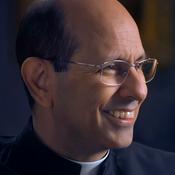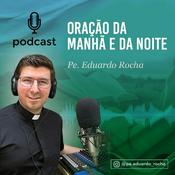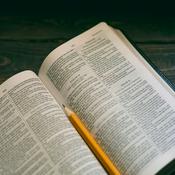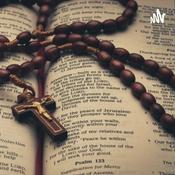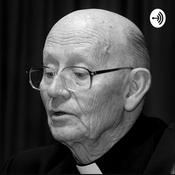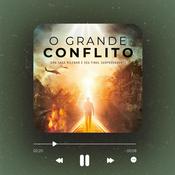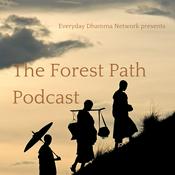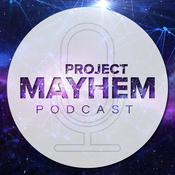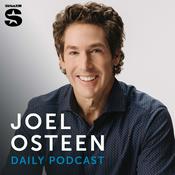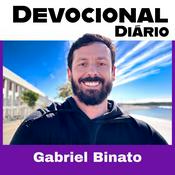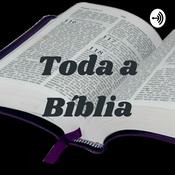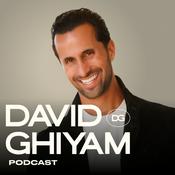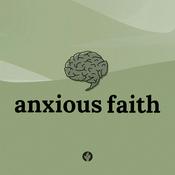Our Daily Bread Podcast
Our Daily Bread Ministries

Último episódio
2239 episódios
- Helping you connect with God. Every day. Every way.
Read along with today’s devotional: https://www.odbm.org/en/devotionals/devotional-category/living-for-jesus
Want to get Our Daily Bread’s daily devotionals delivered to your inbox or mailbox? Subscribe for free here: https://odbm.org.
Our Daily Bread Ministries helps millions of people connect with God each day. For more than 75 years, our purpose has remained the same: to reach people with the life-changing wisdom of the Bible.
All Scripture from the New International Version, unless otherwise noted.
SUPPORT Our Daily Bread
Your generous support helps us make the life-changing wisdom of the Bible understandable and accessible to people around the world. https://donations.ourdailybread.org/intm9.html?motivation=INTM9
More Podcasts from Our Daily Bread:
Discover the Word: https://www.discovertheword.org
God Hears Her: https://www.godhearsher.org/podcast
Ways To Connect With Us:
Facebook: https://facebook.com/ourdailybread
Instagram: https://www.instagram.com/ourdailybread/
Twitter: https://twitter.com/ourdailybread
Print Subscription: https://odb.org/getprint
App: https://odb.org/mobile-resources
Web: https://odbm.org
#ourdailybread #dailydevotional #bible - Helping you connect with God. Every day. Every way.
Read along with today’s devotional: https://www.odbm.org/en/devotionals/devotional-category/lavish-love
Want to get Our Daily Bread’s daily devotionals delivered to your inbox or mailbox? Subscribe for free here: https://odbm.org.
Our Daily Bread Ministries helps millions of people connect with God each day. For more than 75 years, our purpose has remained the same: to reach people with the life-changing wisdom of the Bible.
All Scripture from the New International Version, unless otherwise noted.
SUPPORT Our Daily Bread
Your generous support helps us make the life-changing wisdom of the Bible understandable and accessible to people around the world. https://donations.ourdailybread.org/intm9.html?motivation=INTM9
More Podcasts from Our Daily Bread:
Discover the Word: https://www.discovertheword.org
God Hears Her: https://www.godhearsher.org/podcast
Ways To Connect With Us:
Facebook: https://facebook.com/ourdailybread
Instagram: https://www.instagram.com/ourdailybread/
Twitter: https://twitter.com/ourdailybread
Print Subscription: https://odb.org/getprint
App: https://odb.org/mobile-resources
Web: https://odbm.org
#ourdailybread #dailydevotional #bible - Helping you connect with God. Every day. Every way.
Read along with today’s devotional: https://www.odbm.org/en/devotionals/devotional-category/divine-restoration
Want to get Our Daily Bread’s daily devotionals delivered to your inbox or mailbox? Subscribe for free here: https://odbm.org.
Our Daily Bread Ministries helps millions of people connect with God each day. For more than 75 years, our purpose has remained the same: to reach people with the life-changing wisdom of the Bible.
All Scripture from the New International Version, unless otherwise noted.
SUPPORT Our Daily Bread
Your generous support helps us make the life-changing wisdom of the Bible understandable and accessible to people around the world. https://donations.ourdailybread.org/intm9.html?motivation=INTM9
More Podcasts from Our Daily Bread:
Discover the Word: https://www.discovertheword.org
God Hears Her: https://www.godhearsher.org/podcast
Ways To Connect With Us:
Facebook: https://facebook.com/ourdailybread
Instagram: https://www.instagram.com/ourdailybread/
Twitter: https://twitter.com/ourdailybread
Print Subscription: https://odb.org/getprint
App: https://odb.org/mobile-resources
Web: https://odbm.org
#ourdailybread #dailydevotional #bible - Helping you connect with God. Every day. Every way.
Read along with today’s devotional: https://www.odbm.org/en/devotionals/devotional-category/belles-belief
Want to get Our Daily Bread’s daily devotionals delivered to your inbox or mailbox? Subscribe for free here: https://odbm.org.
Our Daily Bread Ministries helps millions of people connect with God each day. For more than 75 years, our purpose has remained the same: to reach people with the life-changing wisdom of the Bible.
All Scripture from the New International Version, unless otherwise noted.
SUPPORT Our Daily Bread
Your generous support helps us make the life-changing wisdom of the Bible understandable and accessible to people around the world. https://donations.ourdailybread.org/intm9.html?motivation=INTM9
More Podcasts from Our Daily Bread:
Discover the Word: https://www.discovertheword.org
God Hears Her: https://www.godhearsher.org/podcast
Ways To Connect With Us:
Facebook: https://facebook.com/ourdailybread
Instagram: https://www.instagram.com/ourdailybread/
Twitter: https://twitter.com/ourdailybread
Print Subscription: https://odb.org/getprint
App: https://odb.org/mobile-resources
Web: https://odbm.org
#ourdailybread #dailydevotional #bible - Helping you connect with God. Every day. Every way.
Read along with today’s devotional: https://www.odbm.org/en/devotionals/devotional-category/it-takes-humility
Want to get Our Daily Bread’s daily devotionals delivered to your inbox or mailbox? Subscribe for free here: https://odbm.org.
Our Daily Bread Ministries helps millions of people connect with God each day. For more than 75 years, our purpose has remained the same: to reach people with the life-changing wisdom of the Bible.
All Scripture from the New International Version, unless otherwise noted.
SUPPORT Our Daily Bread
Your generous support helps us make the life-changing wisdom of the Bible understandable and accessible to people around the world. https://donations.ourdailybread.org/intm9.html?motivation=INTM9
More Podcasts from Our Daily Bread:
Discover the Word: https://www.discovertheword.org
God Hears Her: https://www.godhearsher.org/podcast
Ways To Connect With Us:
Facebook: https://facebook.com/ourdailybread
Instagram: https://www.instagram.com/ourdailybread/
Twitter: https://twitter.com/ourdailybread
Print Subscription: https://odb.org/getprint
App: https://odb.org/mobile-resources
Web: https://odbm.org
#ourdailybread #dailydevotional #bible
Mais podcasts de Religião e espiritualidades
Podcasts em tendência em Religião e espiritualidades
Sobre Our Daily Bread Podcast
Helping you connect with God and experience His peace, daily. The audio version of Our Daily Bread is an effective resource for those who desire constant awareness of God's Word and its significance in the life of the believer.
Site de podcastOuça Our Daily Bread Podcast, Christo Nihil Praeponere e muitos outros podcasts de todo o mundo com o aplicativo o radio.net

Obtenha o aplicativo gratuito radio.net
- Guardar rádios e podcasts favoritos
- Transmissão via Wi-Fi ou Bluetooth
- Carplay & Android Audo compatìvel
- E ainda mais funções
Obtenha o aplicativo gratuito radio.net
- Guardar rádios e podcasts favoritos
- Transmissão via Wi-Fi ou Bluetooth
- Carplay & Android Audo compatìvel
- E ainda mais funções


Our Daily Bread Podcast
Leia o código,
baixe o aplicativo,
ouça.
baixe o aplicativo,
ouça.

